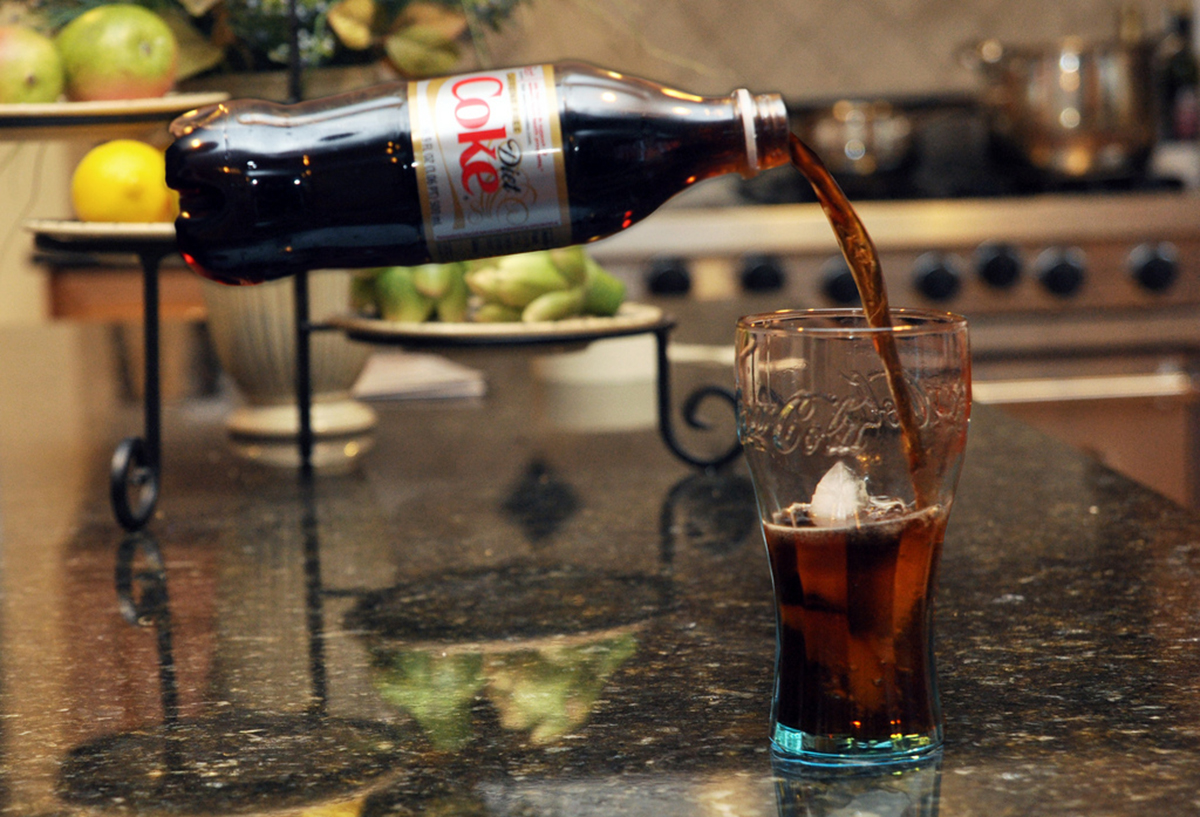Table of Contents
Some people believe that replacing their consumption of sugar-sweetened beverages with that of artificially sweetened drinks helps them lose weight. These artificially sweetened beverages are often called diet soda because they contain no calories in spite of their sweet taste.

Sugary Beverages and Body Weight
Just a few years ago, scientists conducted a national survey to study the trends on the consumption of sugar-sweetened beverages (SSBs) among US adults. They found that in recent decades, there has been a significant rise in the consumption of sugary beverages, which was highest among young adults, especially among black individuals. They also noted that this increase in SSB consumption occurred in people who are of greatest risk for obesity and diabetes. They also observed that although obese and overweight individuals who wanted to lose weight were less likely to drink these beverages, they still drank them in large amounts.
Researchers at the Johns Hopkins Bloomberg School of Public Health studied the effects of reducing the intake of different types of beverages on changes in body weight for a period of six to 18 months. These beverages included SSBs (regular soda, fruit drinks, etc), diet drinks, milk products (whole milk, skim milk, 2% reduced-fat, and1% low-fat milk), 100% fruit or vegetable juice, coffee, tea and alcoholic beverages. They found that people who reduced their intake of SSBs were the only ones who lost a significant amount of weight over time.
Is Drinking Diet Soda Effective for Weight Loss?
Observations from various studies linking the consumption of sugary beverages to obesity and overweight has led some people to believe that turning to artificially-sweetened beverages such as diet soda, which has zero calories, can help people lose weight. It is a fact that the consumption of diet beverages has skyrocketed and is considered by some as a strategy to control weight. However, studies evaluating the effects of diet soda and other beverages on weight control have shown conflicting results.
In 2005, researchers at the University of Texas Health Science Center compared the effects of drinking regular soda and diet soda on weight change in more than 1500 participants whom they observed for seven to eight years. They reported that those who regularly consumed diet beverages had the greatest risk of gaining weight, citing that there was more than 40% increased risk of gaining weight for every bottle or can consumed daily. However, the authors explained that diet beverages were not necessarily the cause of obesity or overweight, but the total amount of calories one consumed in their daily diet.
See Also: Shocking Facts About Sodas
In fact, a more recent survey by researchers at the Johns Hopkins Bloomberg School of Public Health involving about 24,000 participants revealed that people of healthy weight who drank diet soda or other beverages consumed fewer calories from food in their daily diet than people who consumed sugary beverages.
There are several factors why diet sodas don't contribute to weight loss as they are intended to:
- Some research suggests that people might compensate for the calories they save by drinking diet soda by eating more of other foods, negating any calorie reduction benefits. The reasons for this aren't entirely clear but may include psychological factors ("I saved calories on my drink, so I can have a treat") or physiological responses to artificial sweeteners.
- Some studies suggest that artificial sweeteners might affect appetite-regulating hormones, the gut microbiota, or how the body processes sugar, potentially leading to increased appetite or reduced metabolic rate. However, this area of research is still evolving, and findings are mixed.
- Consuming artificially sweetened beverages might perpetuate a preference for sweet tastes, making it harder to appreciate less-sweet (and often less-caloric) food and drink options.
While drinking diet soda in place of regular soda can reduce calorie intake, its effectiveness as a weight loss tool is mixed and may depend on how it fits into the overall context of one's diet and lifestyle.
- NIH. Diet Beverages and Body Weight. http://www.nih.gov/researchmatters/february2014/02032014diet.htm
- JHSPH. Beverage Consumption a Bigger Factor in Weight. http://www.jhsph.edu/news/news-releases/2009/caballero-beverage-consumption.html
- AJCN. Increasing consumption of sugar-sweetened beverages among US adults: 1988–1994 to 1999–2004. http://ajcn.nutrition.org/content/89/1/372.full
- WebMD. Drink More Diet Soda, Gain More Weight? http://www.webmd.com/diet/news/20050613/drink-more-diet-soda-gain-more-weight
- Photo courtesy of Mike Poresky by Flickr : www.flickr.com/photos/mikeporesky/5076690136
- Photo courtesy of Marcin Wichary by Flickr : www.flickr.com/photos/mwichary/3564121630
- www.webmd.com
- ajcn.nutrition.org
- www.jhsph.edu
- www.nih.gov

